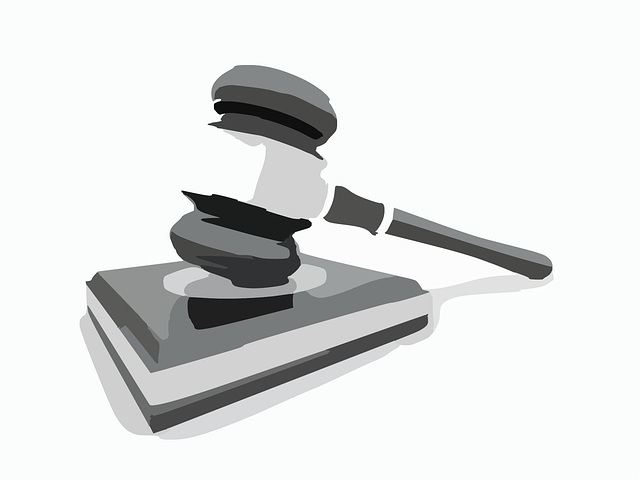Mitigating penalties in white-collar crime cases involves a strategic defense approach. Lawyers specialize in navigating complex legalities, exposing investigation weaknesses, and presenting compelling defenses, often resulting in reduced charges or acquittals. A two-pronged strategy includes proactive compliance programs to deter unethical conduct and strengthen internal controls, as well as seamless communication with regulatory bodies throughout investigations. Case studies provide insights into successful outcomes, emphasizing the importance of proactive internal investigations, prompt disclosures, effective law enforcement communication, robust compliance programs, and corporate governance structures for stronger defenses.
Corporate Crime Investigations delve into complex white-collar crimes, where financial gain and deception thrive. Understanding these insidious schemes is crucial for businesses aiming to protect themselves from severe legal repercussions, including heavy fines and reputational damage. This article explores strategies for mitigating penalties in white-collar crime cases, examining legal and ethical approaches proven effective in navigating these intricate investigations. We also present compelling case studies, highlighting successes and lessons learned from high-profile white-collar cases.
- Understanding Corporate Crime Investigations: A Deep Dive into White-Collar Crimes
- Strategies for Mitigating Penalties: Legal and Ethical Approaches
- Case Studies: Successes and Lessons Learned in High-Profile White-Collar Cases
Understanding Corporate Crime Investigations: A Deep Dive into White-Collar Crimes

Corporate Crime Investigations delve into complex white-collar crimes, where financial gains and power are at the forefront. These investigations, often involving intricate financial schemes, fraud, and breach of trust, require meticulous strategies to uncover truth and mitigate penalties in court. Understanding the nuances of these cases is crucial for winning challenging defense verdicts across the country.
Lawyers specializing in this field play a pivotal role in navigating the legal labyrinth, ensuring their clients receive fair representation. By employing strategic tactics, they can expose weaknesses in investigations and present compelling defenses. This meticulous approach, combined with extensive knowledge of financial regulations, has led to successful outcomes for his clients, often resulting in reduced charges or acquittals, showcasing the effectiveness of tailored defense strategies in combating allegations of white-collar crime.
Strategies for Mitigating Penalties: Legal and Ethical Approaches

In mitigating penalties for white-collar crime cases, a multifaceted approach combining legal and ethical strategies is paramount. One key strategy involves proactive compliance programs that establish robust internal controls, whistle-blower mechanisms, and comprehensive employee training to deter unethical behavior. By fostering a culture of integrity, organizations can significantly reduce the likelihood of corporate crimes, achieving extraordinary results in preventing future offenses.
Additionally, effective communication and cooperation throughout all stages of the investigative and enforcement process are crucial. This includes transparent record-keeping, timely disclosure of relevant information, and open dialogue with regulatory authorities. Adhering to ethical guidelines not only helps in reaching fair resolutions but also strengthens an organization’s reputation, demonstrating its commitment to combating white-collar and economic crimes.
Case Studies: Successes and Lessons Learned in High-Profile White-Collar Cases

Case studies offer valuable insights into the intricacies of corporate crime investigations, highlighting both successful outcomes and lessons learned from high-profile white-collar cases. These real-world examples serve as a guide for legal professionals navigating complex scenarios involving financial fraud, insider trading, and other forms of corporate misconduct. By examining strategies employed during all stages of the investigative and enforcement process, white collar defense attorneys can better equip themselves to mitigate penalties for their clients.
Successful case outcomes often stem from proactive measures taken at the outset, such as thorough internal investigations and prompt disclosure to authorities. Effective communication between companies and law enforcement agencies is crucial throughout the process, ensuring transparency and cooperation. Lessons learned include the importance of robust compliance programs and effective corporate governance structures in preventing future offenses. Understanding these dynamics allows legal teams to build stronger defenses, ultimately aiming for resolutions that not only protect clients’ interests but also contribute to a more robust framework for mitigating penalties in white-collar crime cases.
Corporate crime investigations, focusing on white-collar crimes, demand a nuanced understanding of legal and ethical strategies. By examining real-world case studies, we can glean valuable insights into successful prosecution and mitigation of penalties. Implementing proactive measures to prevent such offenses is key, while adopting legal and ethical approaches during investigations and trials can significantly reduce consequences for companies. Leveraging these lessons learned ensures businesses navigate complex regulatory environments with enhanced integrity and resilience. To further mitigate penalties in white-collar crime cases, continuous education and adaptation to evolving laws are imperative.






